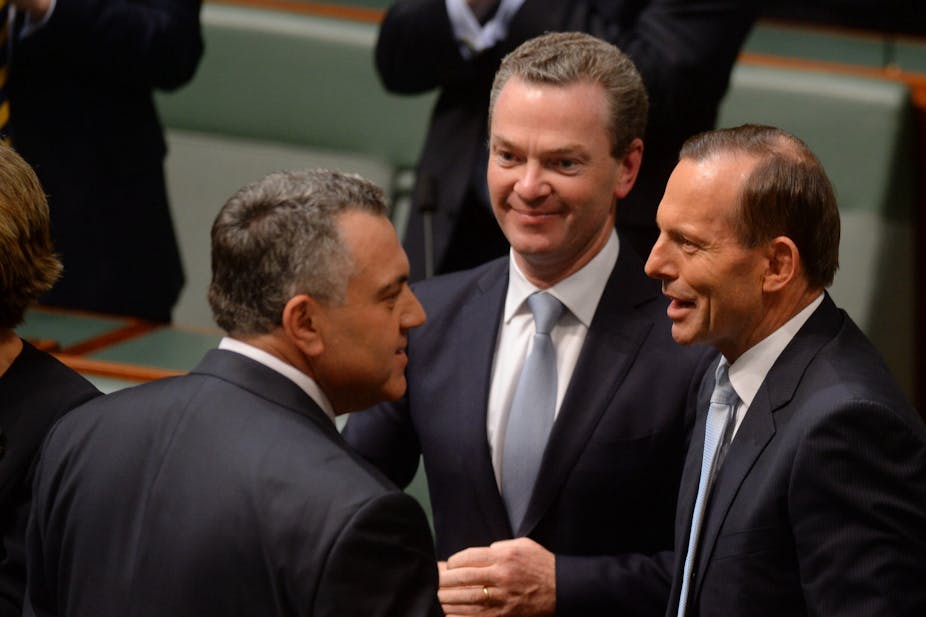The federal government has announced a $20 billion medical research future fund, which is expected to distribute $1 billion to research by 2022-23, doubling its direct medical research funding. The announcement was the biggest surprise of the budget.
Douglas Hilton is director of Walter and Eliza Hall Institute. He played a lead role in the Discoveries Need Dollars campaign that successfully lobbied against proposed cuts to medical funding by the Labor government in 2011.
Was this a surprise?
Over the last 18 months or so there have been indications from the current government when it was in opposition, and when it was elected that medical research was a priority. Andrew Robb mentioned it a number of times in the interview I did for The Conversation last year, and Tony Abbott, in his budget reply speech last year as opposition leader mentioned medical research in the first 15 seconds of his speech.
But really, the three things that have happened are Discoveries Need Dollars, which highlighted the fact the community is highly supportive of health and medical research; it does a lot for the community and the community really supports it so there’s really a good synergy there.
The second was push for the McKeon Review (Strategic Review of Health and Medical Research). I think Simon McKeon needs to get a lot of credit for this budget announcement.
I think he put forward a remarkably cogent argument for the role of health and medical research in the Australian community, so that was essential. And of course, there’s been steady lobbying of government ever since. So I think it’s been those three platforms.
The money will come from “budget savings” in the health sector via, among other things, a $7 co-payment fee for visits to general practitioners. Does the move to link it to research gag criticism of the co-payments?
What it does show that the co-payments are going to be used for something that the community is highly supportive of. The community for many years has shown that it is a remarkable and generous support of medical research, so in that sense it probably sweetens the pill.
Will this move effectively stop the other political parties from blocking the co-payment?
I don’t know how the linking of the $20 billion medical research fund and Medicare co-payments is going to play out in the Senate. That’s a very interesting political issue.
Adam Bandt has been extremely supportive of health and medical research but the Greens as a party are opposed to co-payments. How these things are going to play is going to be very interesting.
Will Labor or the Greens’ opposition to the move unleash a campaign like Discoveries Needs Dollars again?
I think that was the right campaign for that moment in time. I can’t imagine us taking researchers out onto the streets for that sort of a political battle.
I’m in Washington, I haven’t spoken to Adam Bandt or Bill Shorten or Catherine King. I think it will be interesting to hear what Bill Shorten says in his Budget reply speech. That’s the next point where we’ll get some understanding.
The issue remains that it’s at the expense of primary care.
There’s obviously debate from the Left and from the Right about how to improve the efficiency of the health-care system. The question is politically whether you think a $7 co-payment for GP visits is the way to do it.
Some commentators will think it is a good way to add discipline to the health-care system, others won’t. It’s a political judgement.
There will be a group of vulnerable Australians for whom the $7 co-payment will be an issue. Clearly, if you’re on $180,000 or whatever the current definition of being wealthy is, the $7 co-payment is not make a difference one way or another.
But I guess the broader question is how does one create a health system that’s continuously improving, allows the community access to the new drugs that they want to access through the Pharmaceutical Benefits Scheme but is sustainable. That to me is one of the national grand challenges.
The government is thinking about this grand challenge, which I think is a good thing. We can debate whether its way of achieving it is right.
When there’s been talk of extra medical funding there’s been grumbling from some scientists saying “let’s not forget basic science”…
The NHMRC really has three pillars and I think the beauty of this is that we can hope all three pillars will be boosted. The NHMRC does fund a lot of basic biology, with a medical research flavour to it and the hope is more of this will be supported in the future.
It clearly also supports clinical and translational research and it also supports preventative health research, health systems research and population research. So my view would be there’s an opportunity for strategic growth in all those areas.
Medical research is clearly the first cab off the rank for this government. In my dealings with the government, I believe it understands that research generally is important to creating a productive economy and the sort of society that we want live in as Australians.
Let’s judge the government’s performance on research at the end of its first term, not part way in.

